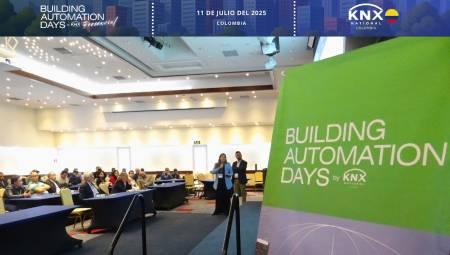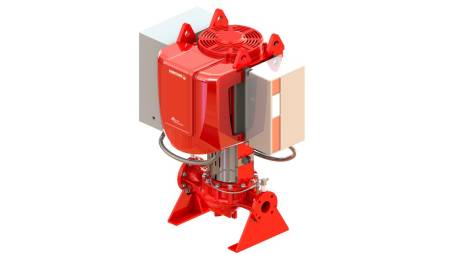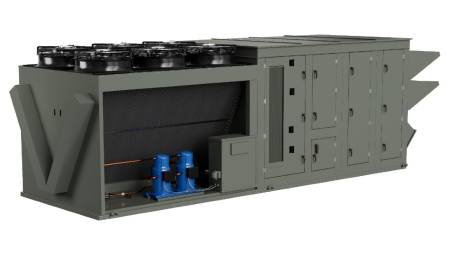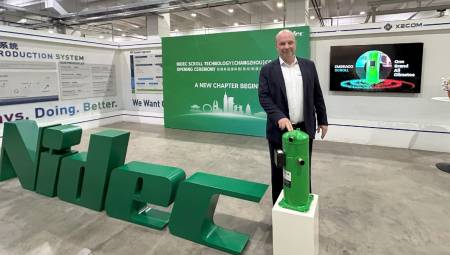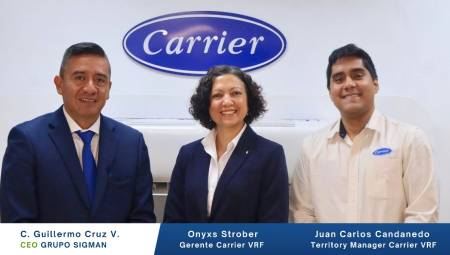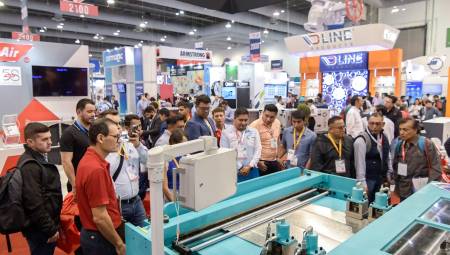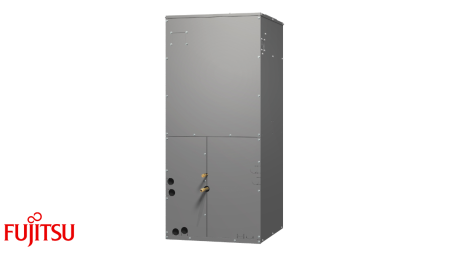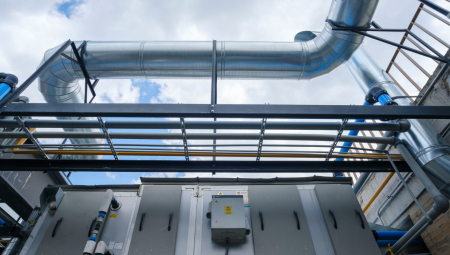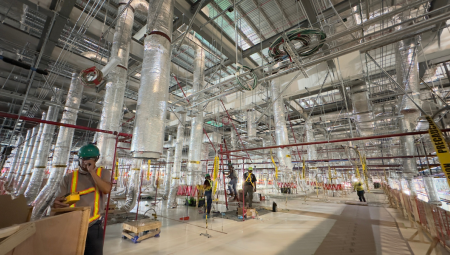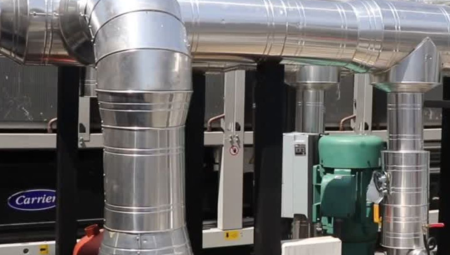Although with the successful replacement of CFCs by HFCs, much damage to the ozone layer has been avoided , the latter were not the final solution to the problem of refrigerants in vehicular air conditioning when it comes to protecting the environment, as these have a high global warming potential and that is why they have been integrated into the Kyoto Protocol.
According to ARAP data, only 30% of greenhouse gases are related to refrigerants such as HFC 134th, the most used currently in vehicular AC. However, these would be 30% less gases released into the atmosphere if they were handled with good practices during interventions to vehicular CAs, and if companies installed highly efficient leak detection measures in these car systems. But the opposite is true, these practices are evaded from manufacturers to end users, through service centers, all of them irresponsible with the environment.
Unfortunately, the technicians of service centers without machinery, insist on making the owner of the vehicle believe that the recycling of the refrigerant is useless and that it is better to buy a new refrigerant, which actually costs 70% more than the work of recycling, as Jorge Colazo said, economist and specialist in gas recycling from Brazil.
The source of the problem
The problem started behind everyone's back. Who could have imagined that by taking the car to the maintenance of the air conditioning, because it was not cooling well or perhaps with the aim of cleaning the system to prepare for a trip to a more tropical climate or in any case, one would be dangerously contributing to the destruction of the planet, to a large extent, due to the irresponsibility of the service centers, which carry out these works without offering the slightest guarantees, even worse, offering it to the detriment of all humanity.
The normal thing in Latin America is that the "technician" proposes to extract the liquid to clean the filters and improve some hose connections and of course, change the refrigerant, suggesting that this is the best thing for the system to look good. The end user says yes, because how many people in Latin America know that refrigerant can be recycled?
According to Ignacio Corella, of Autoclimas Mexico "the informality of many workshops or technicians that only offer cargo or minor repair services in high season, whether automotive or stationary, is to the detriment of the client and serious established companies, which pay taxes and maintain a workforce. Their service is also deficient and the guarantee extremely questionable."
And it is that in addition to the incompetence – or in the worst case dishonesty – of the service centers that carry out these tasks irresponsibly, there are no campaigns in the media that inform citizens about how to join the care of the planet and reduce the generation of gases with global warming potential and, for this particular case, there is no guidance on where to go and what to take into account when performing the maintenance of the vehicle's air conditioning. {mospagebreak}
But the issue of raising awareness among the end user is not the only thing that the ministries and secretariats of the environment of the different countries of Latin America are failing, entities that have assumed the challenge and responsibility of combating global warming as agreed in the Kyoto Protocol signed in 1997 and in force since 2005.
There is a lack of legislation and training of people for these trades, even worse, when one of the main objectives of the Kyoto Protocol, since 2008, is to reduce the production of hydrofluorocarbons (HFCs), which, although the subject of this article is not directly related to the production of these, on its recycling depends the useful life of many vehicular air conditioning systems in the future and on their proper management, the contribution to the ultimate goal of the protocol, to avoid or at least reduce global warming.
Corroborating the above, Ignacio Corella expresses that, "the government agencies responsible for the protection of the environment in each country, must initiate a "hunt" as is done with the payment of taxes, in such a way that the requirement to count and use refrigerant gas recovery equipment is specified and severe fines are applied to those who do not do things correctly. ".
However, in Mexico, there is already a regulation regarding the issue, but there is still no one to enforce it, said Engineer Corella. In the case of Colombia, things are going a little slower, since the construction of a law that requires the training of technicians in a labor competence standard and in the appropriate provision of workshops is just being advanced; It is noteworthy that in this country there are already more than two thousand people trained in this standard of labor competence.
In addition, in Colombia they invested 700 thousand dollars last year in studies, purchase of machinery and training; for this year the UTO (Ozone Technical Unit) plans to invest around one million dollars more, continuing with the aim of strengthening the capacity of the workshops, delivering machinery in consignment and training personnel through the National Learning Service, this was reported by Antonio Orozco Rojas, Head of Monitoring and Follow-up of the Ozone Technology Unit, of the Ministry of the Environment.
Unfortunately and despite the efforts of governments and private companies, the technology to perform these procedures is still expensive, the most economical recovery and recycling machines range from US $ 650 of limited capacity, to computerized stations of almost US $ 5,000, in addition and as Colazo adds, "these equipment have existed since approximately 85, in Latin America their massive use is not yet seen due to the cost, adding to this, that the imported equipment is not suitable for the region and that makes its maintenance very expensive, which has become perhaps the main barrier to work with good practices".
In any case, the above is not a reason for the brazen act of barbarism that irresponsible workshops continue to carry out with the environment in Latin America, detaching the hose and simply releasing the HFC 134ª refrigerant directly into the air, without the slightest sense of guilt, has no excuse, because, if a workshop does not have the right tools to provide a service, because obviously I should not offer it. {mospagebreak}
The problem is aggravated when the high cost of machinery and irresponsible service centers, is added to the attitude of the Latin American consumer, who is always looking for price, "quality and guarantee take a back seat since the consumer generally opts for the most economical alternative, without foreseeing consequences," Corella said. In the same way Jorge Colazo thinks that: "whoever recovers refrigerants does so thinking about the environment, but above all, about the economy that makes reuse of gases, which can reach 70% on the purchase of new gas".
It is clear that the main problem remains misinformation and awareness, since, if an end user is well informed, he will surely demand the most economical and profitable service for him and the environment. Although the ecological issue is booming, there is very little that the common person knows about the subject and less, when it comes to recovery and recycling of refrigerants in vehicular AC.
The problem of leaks
The release of refrigerants into the atmosphere, during interventions to vehicular air conditioning systems is not the only problem that the environment must take care of, since the leaks of refrigerants from the systems continue to be another high point in the subject, if it is good practices and proper handling of refrigerants. As the expert Jorge Colazo put it, "when the recovery of refrigerants is carried out with adequate practices, there is no cause of losses or leaks of these substances, what happens most with cars, is that by having rubber hoses and by walking on bad roads, the gas from the system escapes. Gas leakage accounts for 70% of AC problems in cars."
The lack of commitment and laws that require standardized procedures for the management of these difficulties in vehicular AC equipment, lead manufacturing companies not to install preventive measures within the systems. This is the case of the ultra violet contrast method, which detects micro leaks of 7.5ml / year, and the factories consider that only leaks larger than 30ml / year, are a problem and do not want to give guarantee for minor leaks. To detect leaks, the contrast would already come from the factory as Ford and GM do in Brazil since 2000, "this would reduce the loss of gas and would be better for the environment," said Colazo.
The situation is quite discouraging and therefore invites to join efforts between ministries, secretariats of environment and service centers that are legalized and that carry out the procedures correctly; the work here is mainly to raise public awareness about what is happening and the importance of recovering and recycling car coolants, in order to contribute to the reduction of global warming. Awareness and information for the end user.
Surely, so that people become aware of taking their car to a place where they guarantee the correct procedure for the recovery and possible recycling of their refrigerant, and that they do not want to sell a new one, it will not be enough to dictate laws and deliver machinery as a loan to workshops, a whole dissemination will have to be made in the media, through service stations and transit personnel; in the same way, create standards of procedures for storage and cleaning of gases etc. {mospagebreak}
In the same way, tell the end user that the refrigerant in your air conditioner can be recycled, that a new gas is not necessary, communicate to the technician that recycled gas is not bad, that there are simply companies that want to sell their new gas. Also, punish the misinformation of what the gas manufacturing companies promote, as Jorge Colazo expressed to this media "The manufacturers of refrigerant gases do not want it to be recycled and then they tell their distributors, not the general public, that recycled gases are bad".
The most important thing to counteract this challenge in Latin America is to keep the issue in the air, talk about it, its impact and all the good we could do for the planet, carrying out adequate processes of recovery and recycling of refrigerants, vehicle air conditioning.


